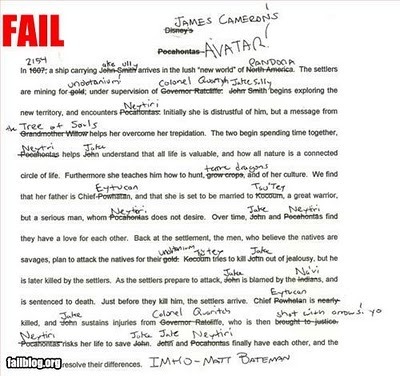History and Fantasy
 Question: what are the odds that this picture was taken in America?
Question: what are the odds that this picture was taken in America?I've spent the last few months of my life considering the fantasy genre and its lack of wide-scale success. Indeed, science fiction and fantasy (Speculative Fiction) make only about 6% of the books sold in the United States. That means that for every 100 books sold in this country only 6 are Speculative Fiction. Now, there are lots of good reasons why the appeal of these books can be so low. Chief among these is the demand for personal investment (memorizing dozens of unpronounceable names, places, and complex ideas, etc…) and the level of education the reader is probably expected to have. However I would like to focus on one specific area of Spec-Fic: fantasy.
Here in the United States, and especially in the CBA market, there can be some pretty serious uphill battles in getting that stuff off the ground. So I would like to postulate the theory. I'm not entirely certain of this, and I'm not married to it (so I guess it's more of a hypothesis) but what I have noticed is as follows: traditional fantasy is a largely European phenomenon.
Stop and consider for a moment. Out of all of the well-loved fantasy written in the last… well… ever, it was almost all written by Europeans. More to the point, the overwhelming majority are from the UK. J.R.R. Tolkein, C.S. Lewis, J.K. Rowling, Susan Cooper, Brian Jacques, and even Terry Pratchett are all from the UK. Though, there are exceptions. Most notable would be Robert E. Howard, author of the Conan stories of the 1930s. But what you'll see in these stories is a dramatic shift in style and even genre (Howard is sometimes credited with originating the Sword & Sorcery sub-genre).
Thus brings me to the really important question: why?
I suppose I should back up a little while I start saying this. There are lots of genres of fantasy, and there are lots of Americans who have been very successful. Superman is an American fantasy, and so also is Stephen King's massively popular Dark Tower series. One could also very safely say that Star Wars is a fantasy. But what you'll notice about all of these is that they are not "traditional" fantasies. In other words (or to put it very bluntly) the are not pseudo-European. They do not usually involve castles, dragons, peasants, kings, feudal systems, or any of the things that European history is steeped in. Indeed, Star Wars is often cited (as much as anything) as being a Western – the quintessential American genre. Continue through the list of successful American fantasies and you will find that most have major roots in the Western genre. Both Stephen King's Roland the Gunslinger and R.A. Salvatore's Drizzt the Dark Elf are admittedly by their creators inspired largely by Clint Eastwood's 'Man With No Name' (Fistful of Dollars, For a Few Dollars More, Good, Bad and Ugly). Even Conan has some very arguably Western traits.
What I think we're seeing is a clear case of cultural honesty. While a person (this includes me) may want to write about castles, kings, and knights, those are historical and cultural allusions to things that are not part of American history. Our history is one defined by the Old West, World War II, and the international space race (all are drawn upon heavily in the creation of the great American myth of Star Wars).
[image error] This says it all.
I would even go so far as to say that part of the success of Avatar comes from its (blatant) allusions to American history.

Now, none of this is any way is meant to say that American culture, history, and society is in any way superior to that of other cultures and places. I'm simply suggesting that if you are an American writer, writing for American readers, then perhaps the best way to resonate with them is to stay American and not pretend to be a European.
Just a very personal thought. Reactions welcome.
Published on July 21, 2010 14:41
No comments have been added yet.
Conlan Brown's Blog
- Conlan Brown's profile
- 19 followers
Conlan Brown isn't a Goodreads Author
(yet),
but they
do have a blog,
so here are some recent posts imported from
their feed.



